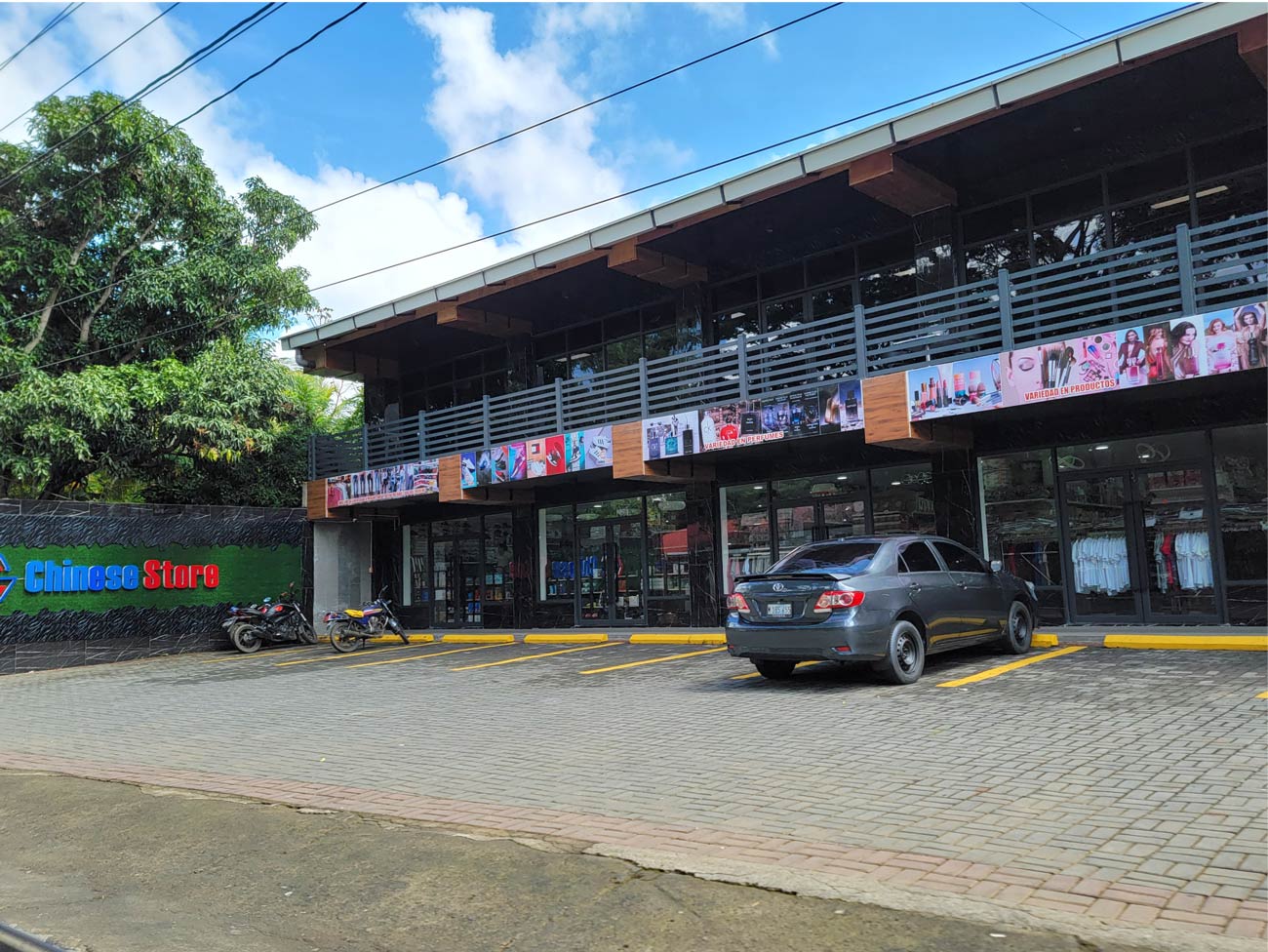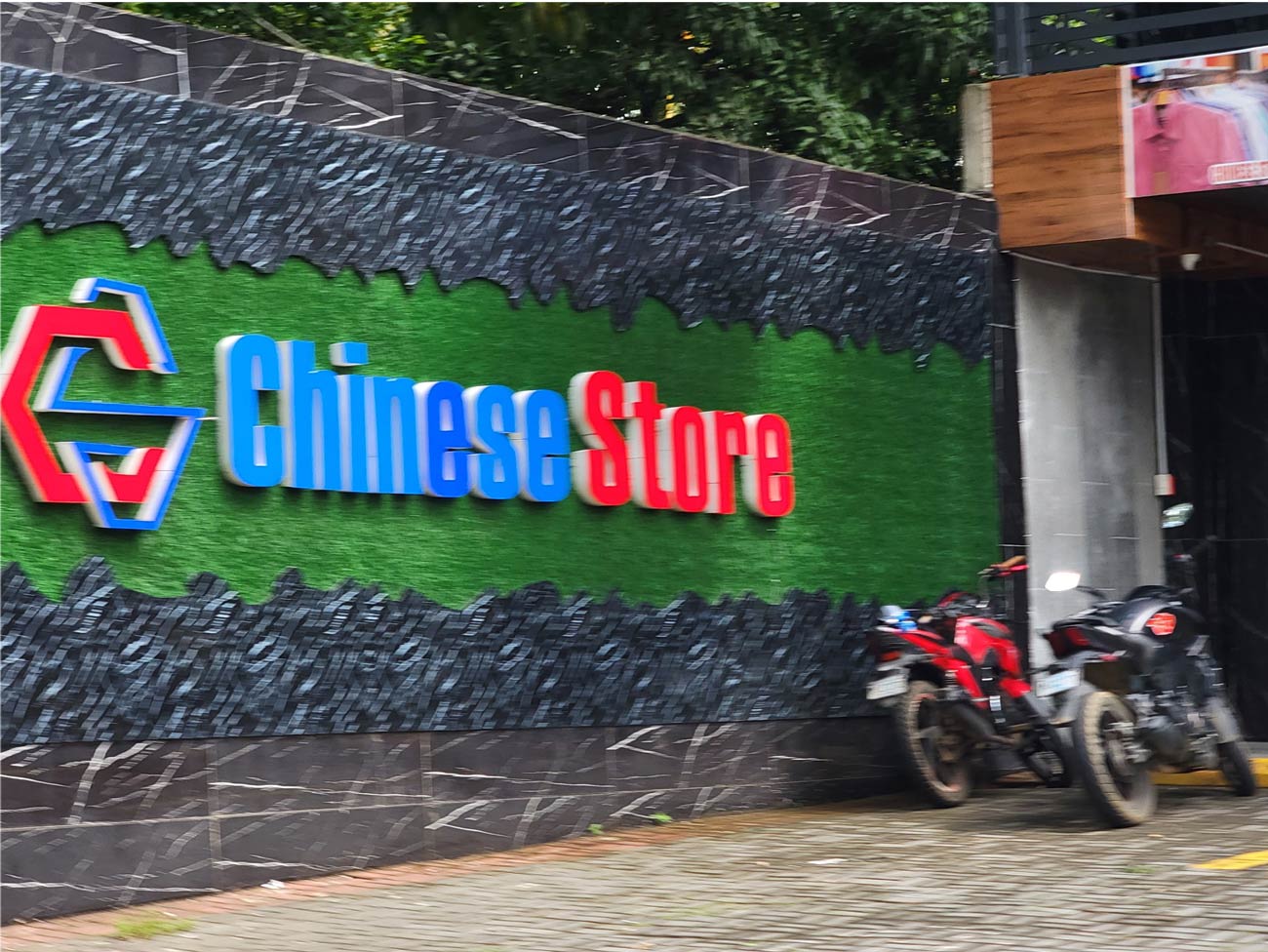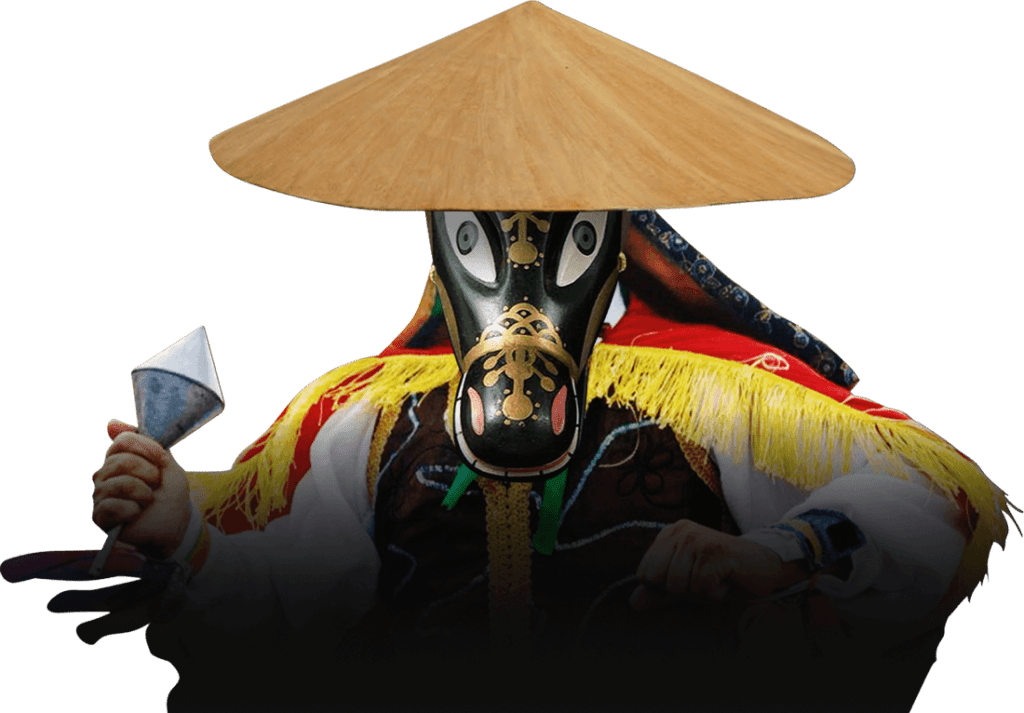

Whether for small customer purchases or to supply resellers and Nicaraguan entrepreneurs, Chinese supermarkets, stores, and department shops are spreading across Nicaragua, both wholesale and retail. DIVERGENTES visited the departmental capitals of the Pacific region to document the rise of these establishments
On Sunday morning, the municipal market in Rivas is empty. There’s little activity and only a few customers. A handful of vendors with vegetable carts and shop attendants selling clothing and shoes chat with each other for company. Most stalls are closed, and the usual bustle of the place is absent today.
Heavy rain has fallen in the department in recent weeks, and the dark clouds overhead threaten more showers, likely keeping people away.
While the market is quiet, at its core stands a large two-story store with loudspeakers blaring music. Red paper spheres hang across the entrance, and the speaker near the door rumbles, breaking the area’s peaceful atmosphere.
This is one of many Chinese businesses that have opened in Nicaragua since last year, when the regime of Daniel Ortega and Rosario Murillo strengthened its commercial ties with the People’s Republic of China by signing a Free Trade Agreement (FTA).
Though they’re scattered throughout Managua, Rivas and other cities across the country are also seeing a massive influx of Chinese entrepreneurs.
DIVERGENTES visited the departmental capitals along Nicaragua’s Pacific coast to document the rise of these businesses, which have raised questions about the benefits the regime is offering Chinese investors for their widespread openings.
Rivas is one of the departments where the arrival of Chinese businesses has been slower. Bazar Oriental, Grandes Almacenes de China, MTMAX, Centro Comercial China Wanda, Chinese Store, and Abasto Comercial Jasmin are some of the new stores in this department over the past year. Most of them are located near or inside the central market of the departmental capital.
Whether wholesale or retail, for a small customer purchase or to supply resellers and Nicaraguan businesses, the selection is varied, abundant, and diverse, catering to any budget. True to the season, most of the items on display are Christmas-themed, now competing not only with local vendors but also with traditional supermarkets.
Chinese signs blend seamlessly into the chaotic backdrop of the market’s tangled electric lines. Near the stores, the owners can be heard speaking to each other in Chinese or attempting to speak broken Spanish with customers. In addition to keeping watch over the store entrances and exits, they are always vigilant at the cash register, guarding the proceeds from sales.
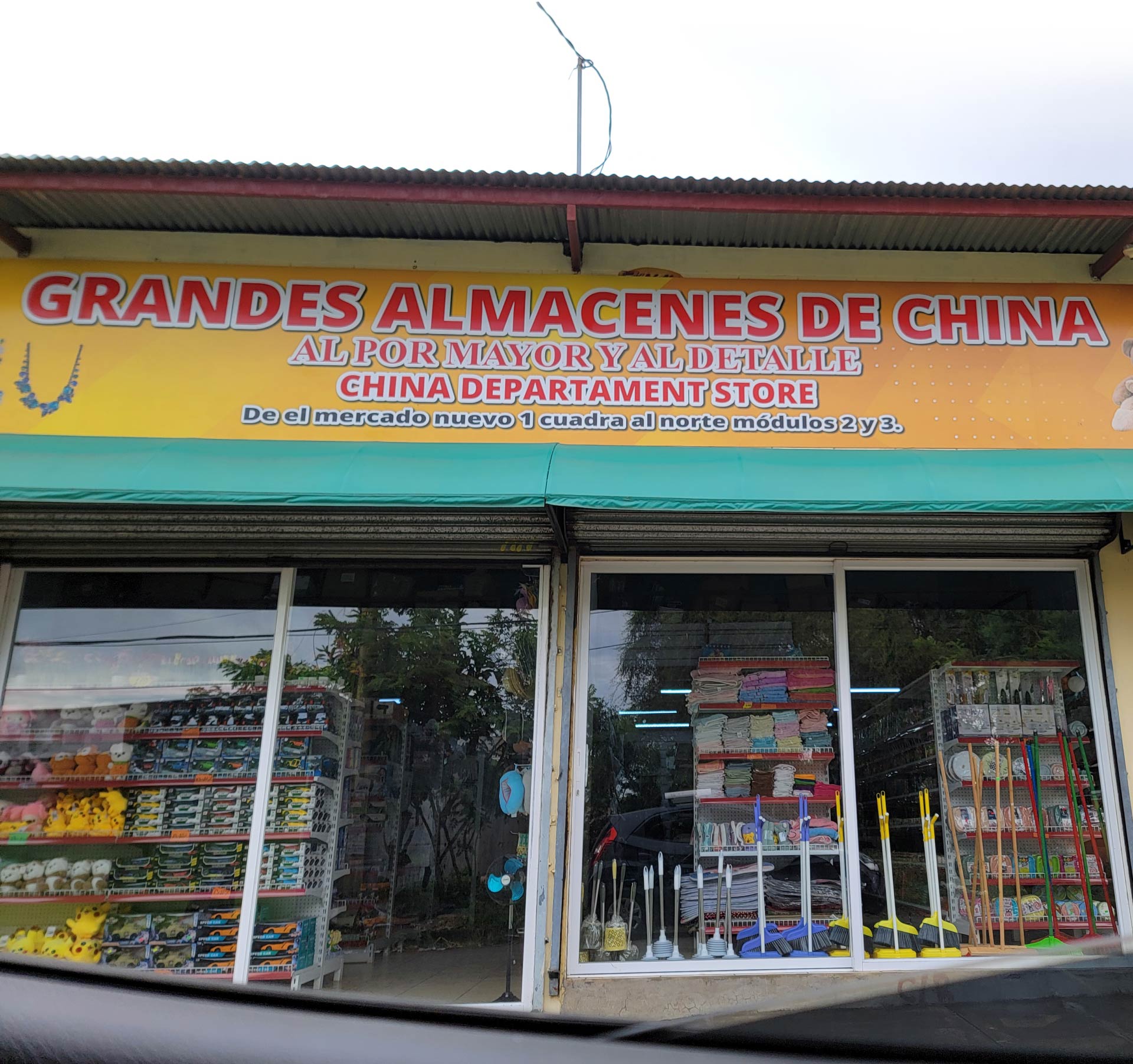
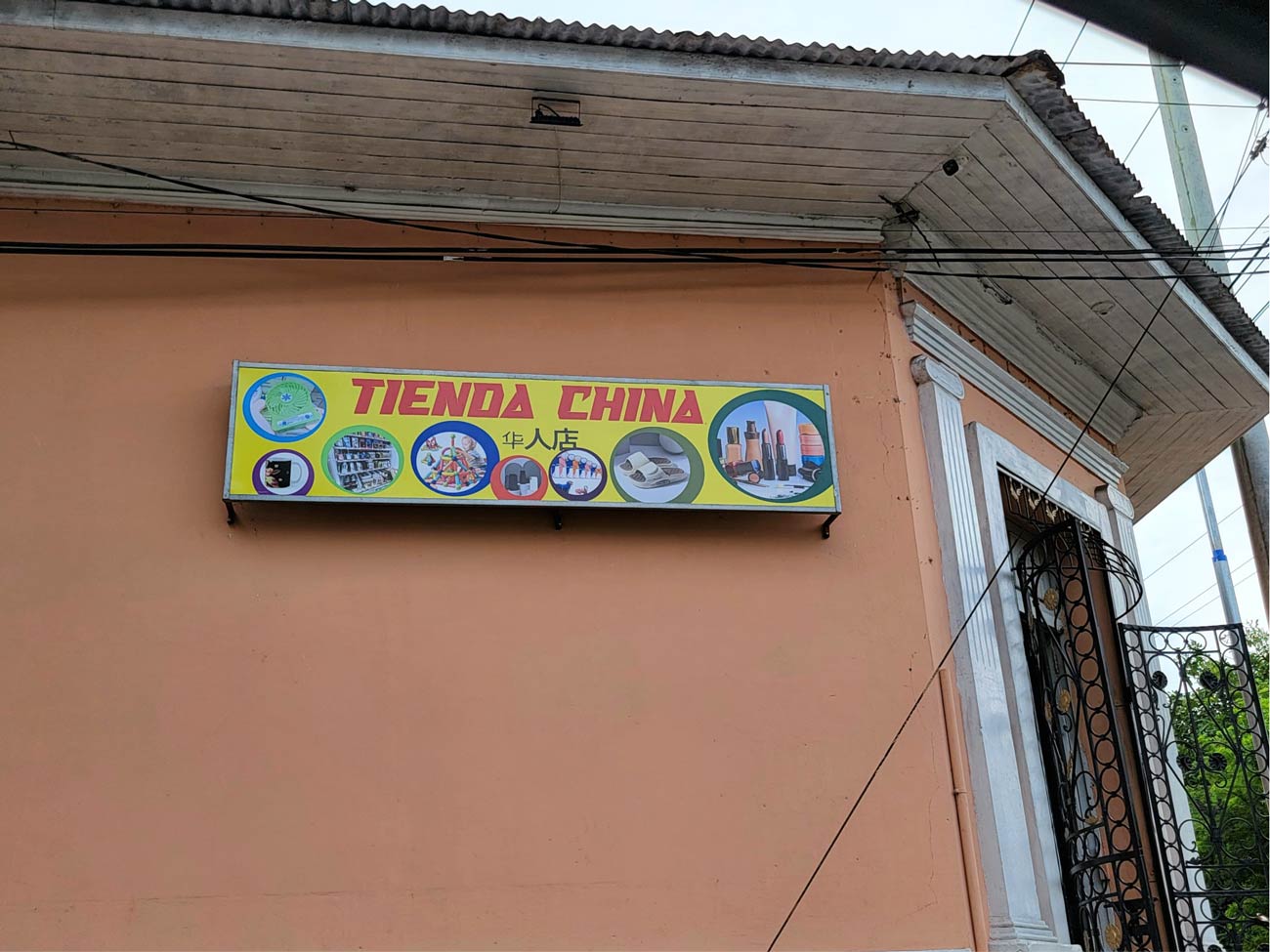
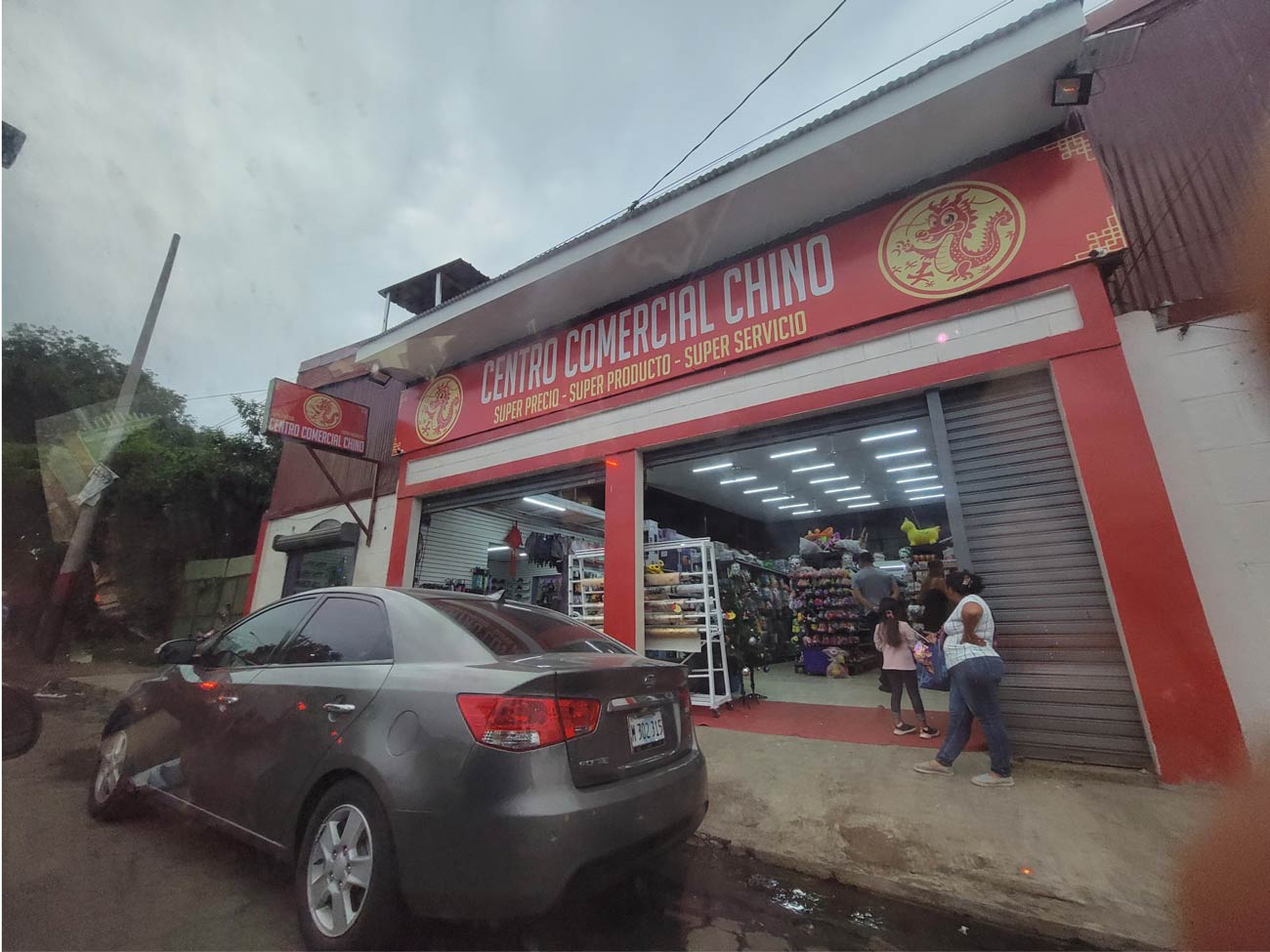
“Chinotepe,” jokes Isabel—who asked to remain anonymous—about the new name she’s given to Jinotepe, the place where she has lived for 40 years. “It’s full of Chinese,” she explains simply as she becomes my guide for the day, sharing the changes she’s witnessed in recent months.
When I ask her if Chinese supermarkets have opened in the municipality, she responds as any typical Nicaraguan would: “Ohhhh! By the dozens! There are more Chinese here than there are Jinotepeños.” Carazo, alongside Managua, is one of the cities with the largest number of Chinese businesses opening.
The Chinese supermarkets are not only in the departmental capital, where most of them are located, but also in nearby municipalities like San Marcos, Diriamba, and Dolores. Many of these businesses are branches of the same companies found in other cities.
As we walk through the rundown streets of Jinotepe, past the old municipal market, Isabel points out each new store. Some have generic names on their signs, but their decorations reveal their origin. “You can spot them by the Chinese decorations,” Isabel says.
Even though it’s Sunday afternoon—usually a quiet time for markets, which are busiest in the morning—the Chinese stores are bustling. One after another, they open, sometimes as many as five foreign businesses on the same block.
In both the old and new markets, as well as on the main avenues of Jinotepe, more and more Chinese stores are popping up, with Asian citizens walking along the sidewalks. Most of these stores have been open for less than a year, offering a range of products from beauty items to home furniture, appliances, and technology. As in the rest of the country, their presence has become a topic of conversation.
Isabel has counted at least 11 stores around these markets. DIVERGENTES confirmed 10 of them. “There’s one by the Palí. Another behind the school. There are so many, you’d never run out,” she says as we continue our walk.
“There’s makeup for as low as 15 pesos, can you imagine? It’s because they don’t pay taxes,” she claims, which is partly true. Chinese investors have been granted tax benefits and privileges by the dictatorship.
The FTA signed in August 2023 between Nicaragua and the People’s Republic of China grants both countries preferential tariff rates on export products. For Nicaragua, 91.4% of its products benefit from these rates, according to information from the Ministry of Development, Industry, and Commerce (MIFIC). However, the dictatorship hasn’t revealed further details on the matter.
According to an analysis published by Confidencial, “Negotiations over the FTA between China and Nicaragua lasted almost a year and were characterized by opacity and a lack of transparency.”
Isabel applies the lipstick she just bought at one of the stores. “It cost me a fortune,” she jokes. Like her, hundreds of people in Carazo have fallen victim to Chinese product consumption. Despite knowing that the quality of these items is questionable, the buying and selling haven’t stopped. “Right now, they’re putting the other stores out of business,” she notes.
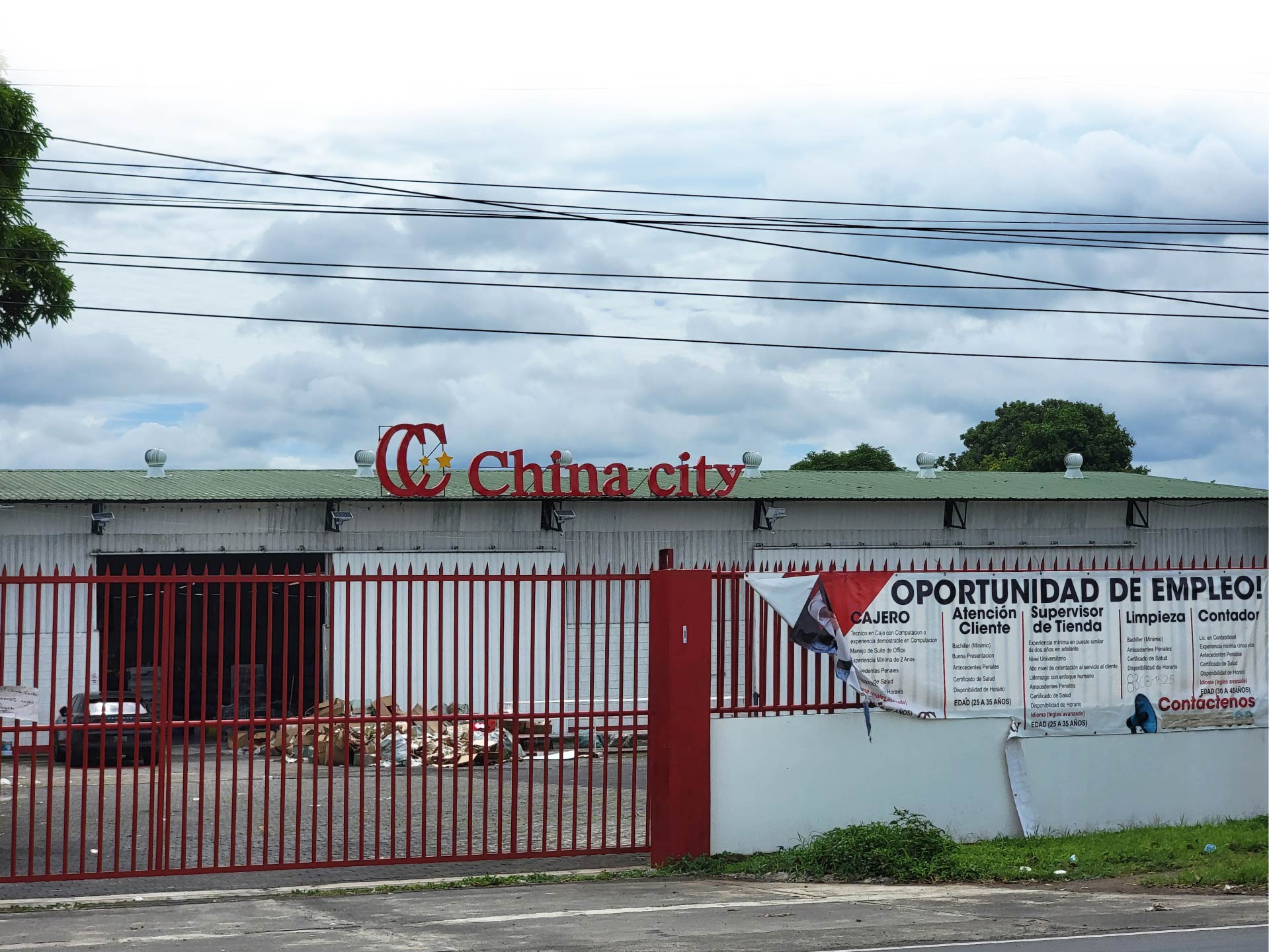
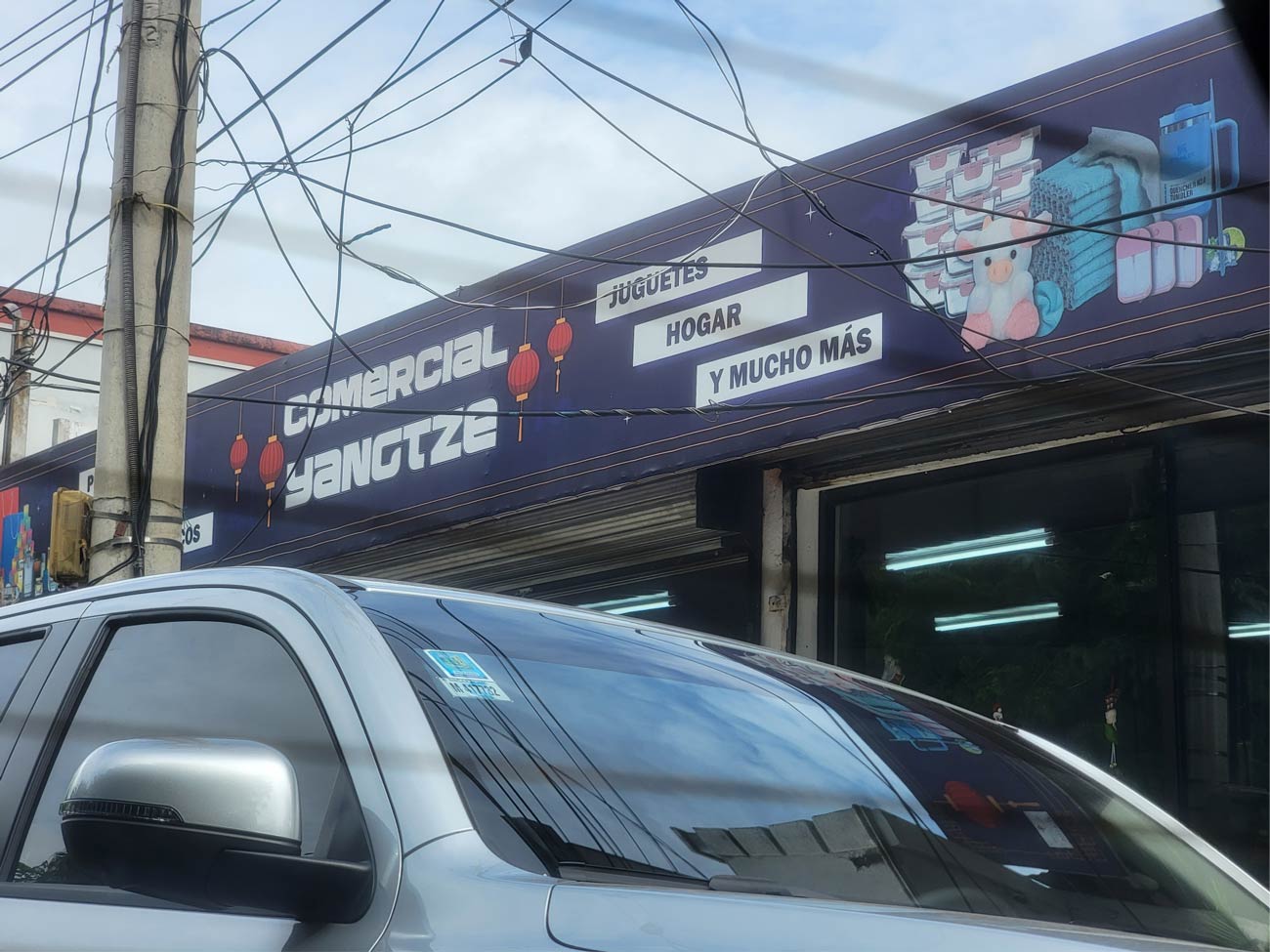
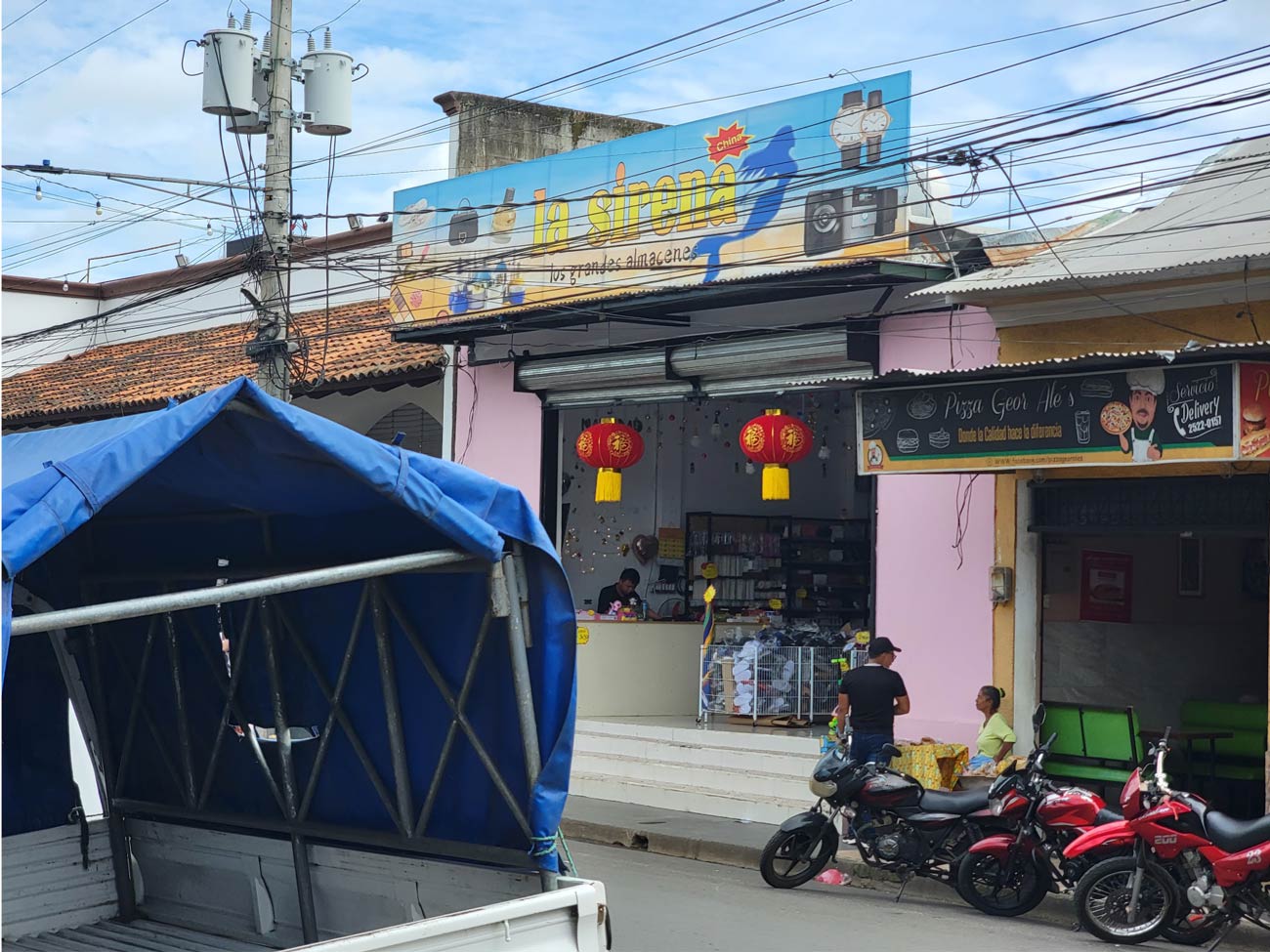
The effects of the Chinese invasion of the Nicaraguan market are clearer in Masaya, “The City of Flowers.” Several small and medium-sized businesses have been displaced because storeowners have refused to renew their lease contracts in favor of Chinese entrepreneurs, according to small business owners who spoke with DIVERGENTES.
“The owner of the property was charging 300 dollars a month, but the Chinese come in and offer double, or even more. Sometimes they even pay six months in advance, and the storeowners prefer that. So they cancel our contracts and give the spaces to the Chinese because they have the money,” explains Mauricio, an entrepreneur who prefers to remain anonymous for safety reasons.
It’s a situation that many Masaya businesspeople are aware of, though they prefer not to publicly denounce it for fear of retaliation from the Ortega-Murillo regime. “The government is friends with the Chinese now, so we can’t say anything against them,” he points out.
Masaya is another city with a growing number of Chinese businesses. On the outskirts of the city, one of the largest supermarkets in the department is under construction. China City reads the mega sign visible from the highway. It’s just one of many stores that are in the process of being built.
These business owners have had to find other locations with monthly rents within their budget, but often these are not as strategically located as before, or they are far from where they used to be, which reduces their existing clientele.
“If you were on a corner or a main street before, now you have to compete with the price that the store owners set for the Chinese,” says Mauricio. “So, you might as well put your booth at the end of the street, where nobody is going to buy from you, but you’ll pay less,” he adds.
Although this isn’t a widespread issue in the department yet, areas where Chinese supermarkets have settled have begun to see a problem that concerns Nicaraguan small business owners, who fear that this phenomenon will spread to their areas.
These Chinese businesses are located on the outskirts of various markets: The Local Market, the Municipal Market, the Handicraft Market, and in the city center, although not yet inside. That area still belongs to Nicaraguans who continue selling traditional groceries.
When I walk toward the bus terminal in Masaya, I notice another Chinese supermarket under construction. There are no signs or decorations yet to reveal its origin, but inside, Chinese workers are unpacking shelves and racks, where they will later place their products. This is the fifth one I see in the city.

“The problem is that entrepreneurs want to make a profit all at once. From one item, they want to make three times its price. You want to buy a purse, it costs 50 pesos at the Chinese store. Then, you go to an entrepreneur… it costs 200, and that’s ridiculous!” says a taxi driver in León.
Although many Nicaraguans find the increase in Chinese businesses concerning, others see it as an opportunity to access low-cost products. “That’s true, but I don’t know how we’re going to handle so many Chinese. There are so many businesses that among themselves they’ll end up competing,” speculates the taxi driver.
Now, next to the León Cathedral, colonial-style cafes filled with tourists and Nicaraguan locals share the space with Chinese merchants. Chinese stores have already reached the tourist areas in the western part of the country, such as along the cathedral, the main streets, and the Poet’s Park, where there is a notable presence of foreigners.
These stores are so new that they don’t even appear on Google Maps yet, and inside, Nicaraguan workers are still unloading goods and organizing shelves.
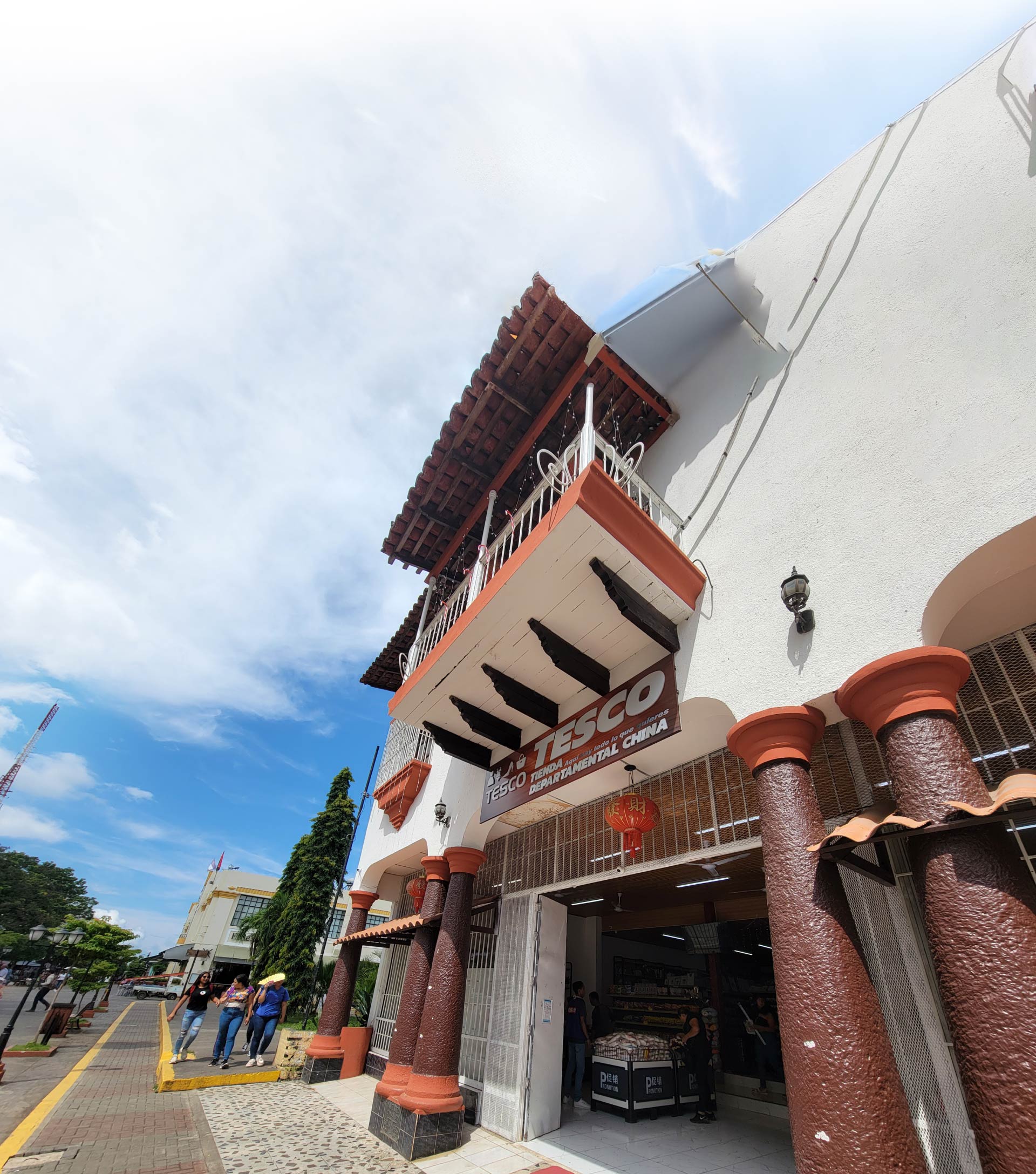
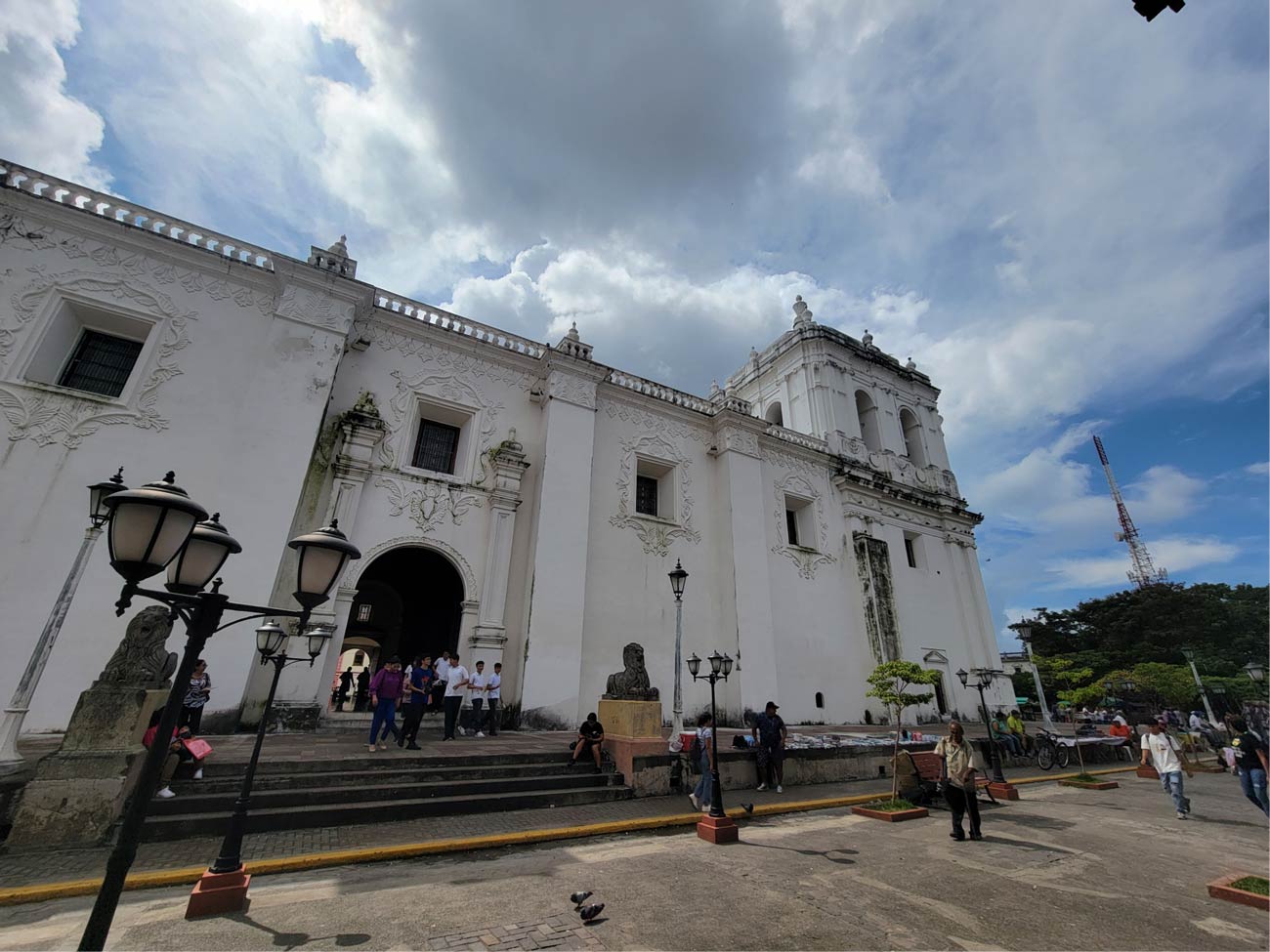
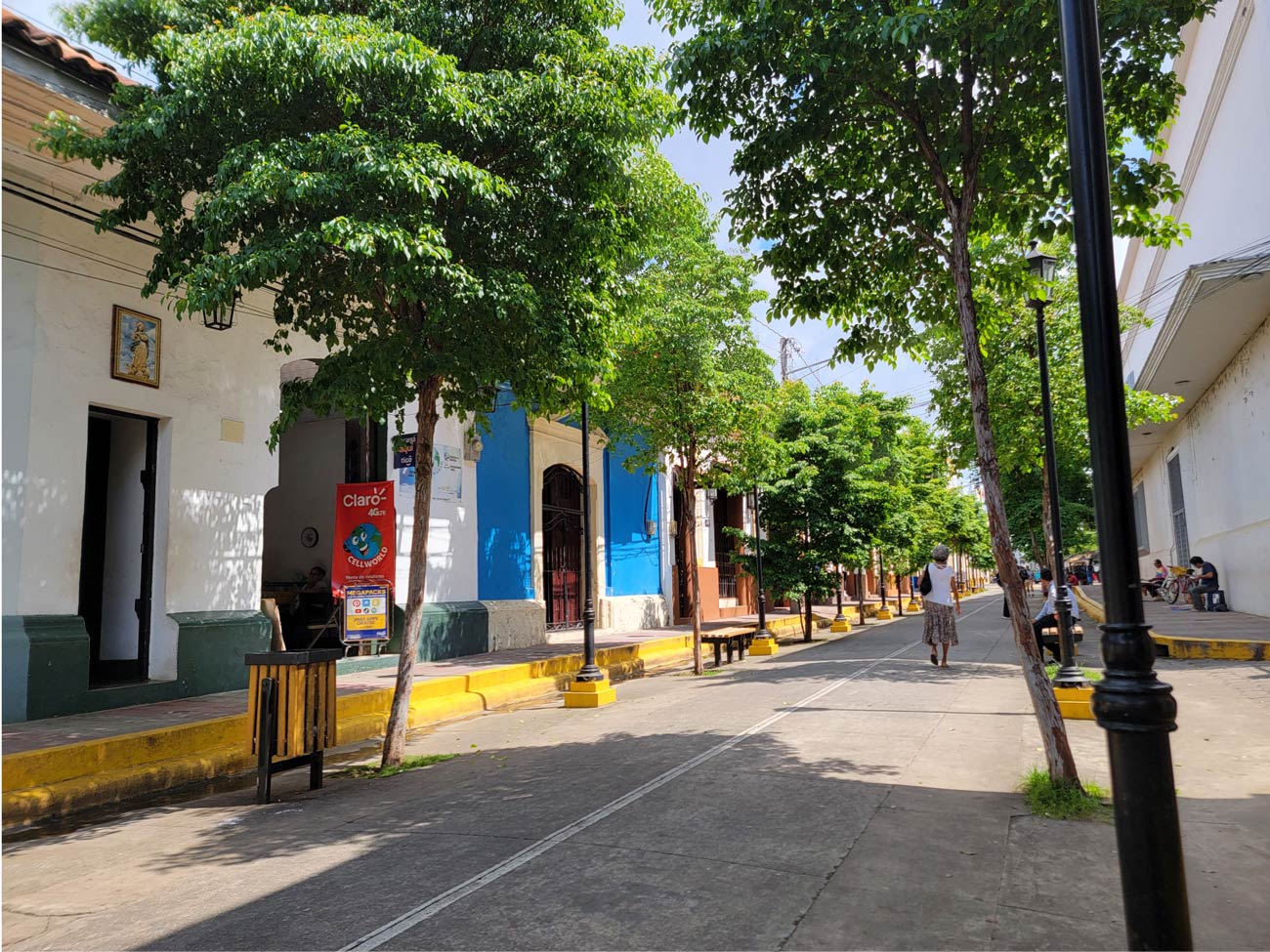
Unlike Chinese stores in Managua, Masaya, Carazo, and Rivas, where the shops and signs are quite simple, in León, Chinese stores make an effort to align with the city’s aesthetic, aiming to blend in with the area’s charm.
Branches of China Mall and other increasingly well-known department stores have already made their way into the city, but they have also sparked complaints from locals about the short lifespan of their products.
These complaints are shared on social media and other platforms, all following the same pattern. “I bought a fan at the Chinese store, and it only lasted two months.” “I bought a bag, and after a few days, the straps broke.” And so on, with people sharing their experiences.
At first glance, many of these stores don’t openly identify as Chinese, but they all share similar features if you look closely. For instance, they use the same price tags for their products, the catalog is always the same, and the products are identical.
“Sometimes you don’t want to buy from the Chinese because their stuff is bad, but now you can’t avoid it. You think you’re buying from any store, and it turns out to be Chinese,” says Leonel, a man in his 60s, with whom I discuss these businesses.
The spread of these products is not only due to Chinese investors opening their stores but also because other Nicaraguans have begun selling these items in their own businesses, benefiting from bulk purchases.
However, Leonel also believes that many Chinese stores “try to disguise that they are Chinese” to avoid scaring off suspicious customers, making them “blend in with the other businesses.” Speculation about this has been growing among the locals.
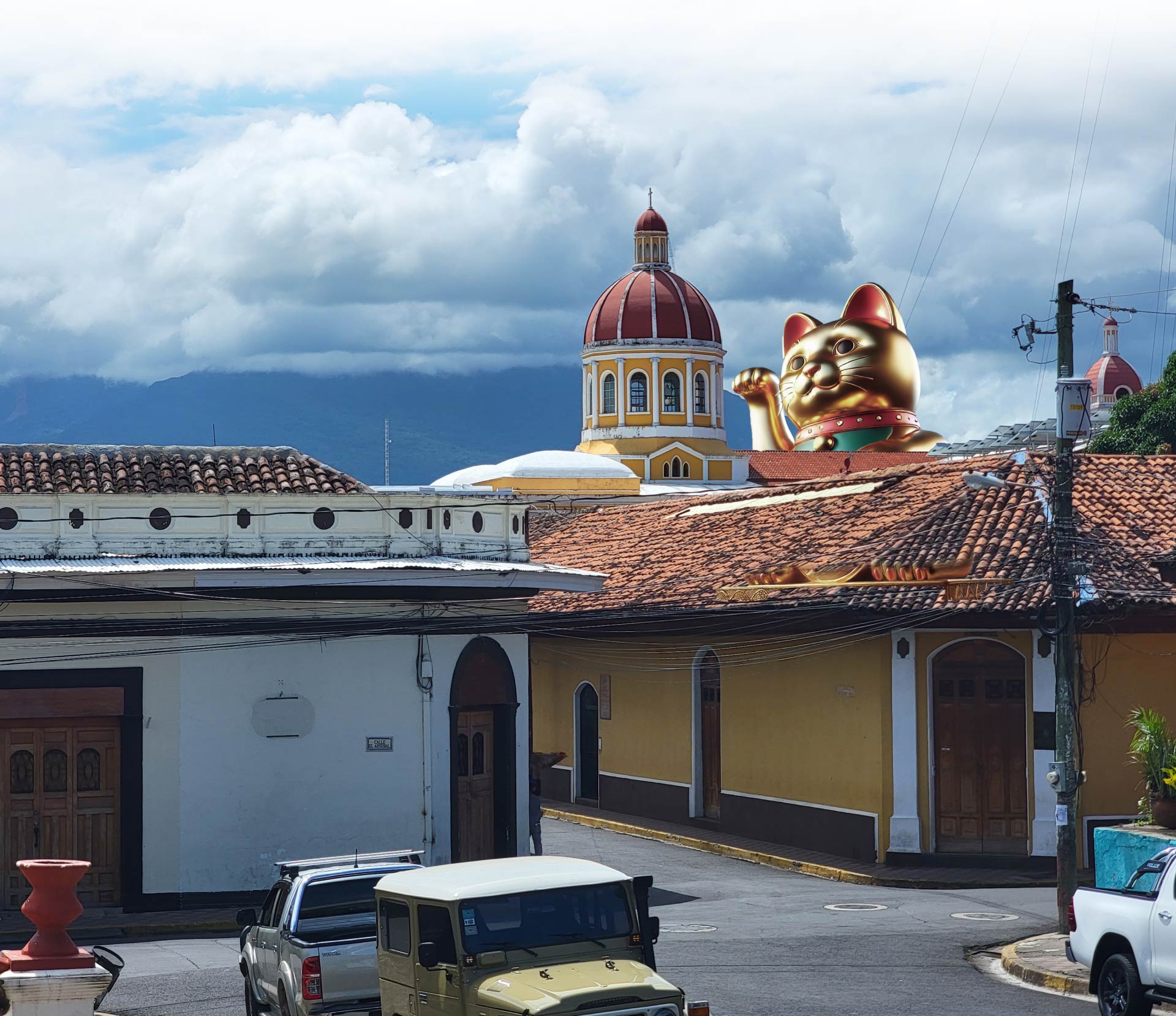
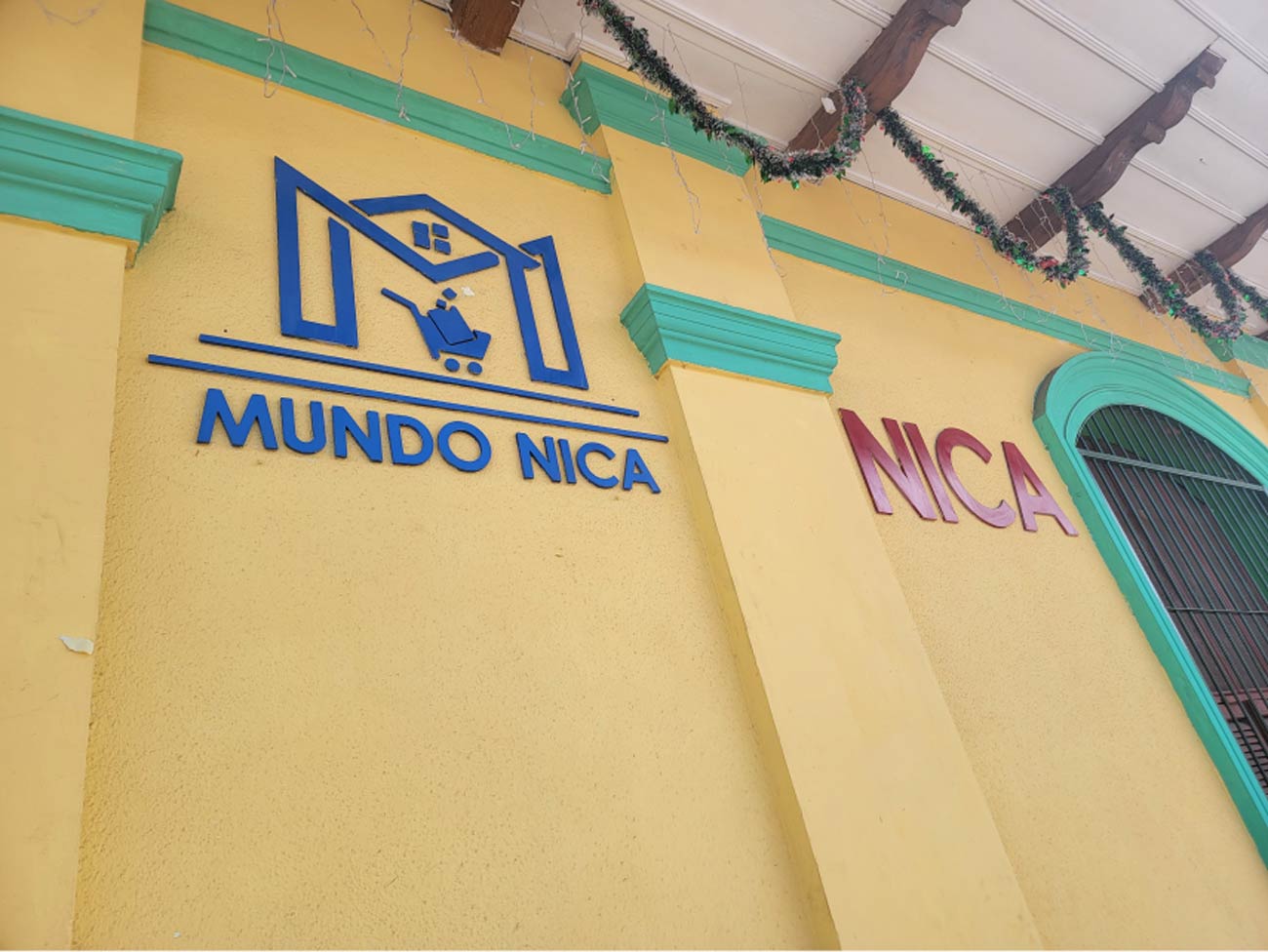
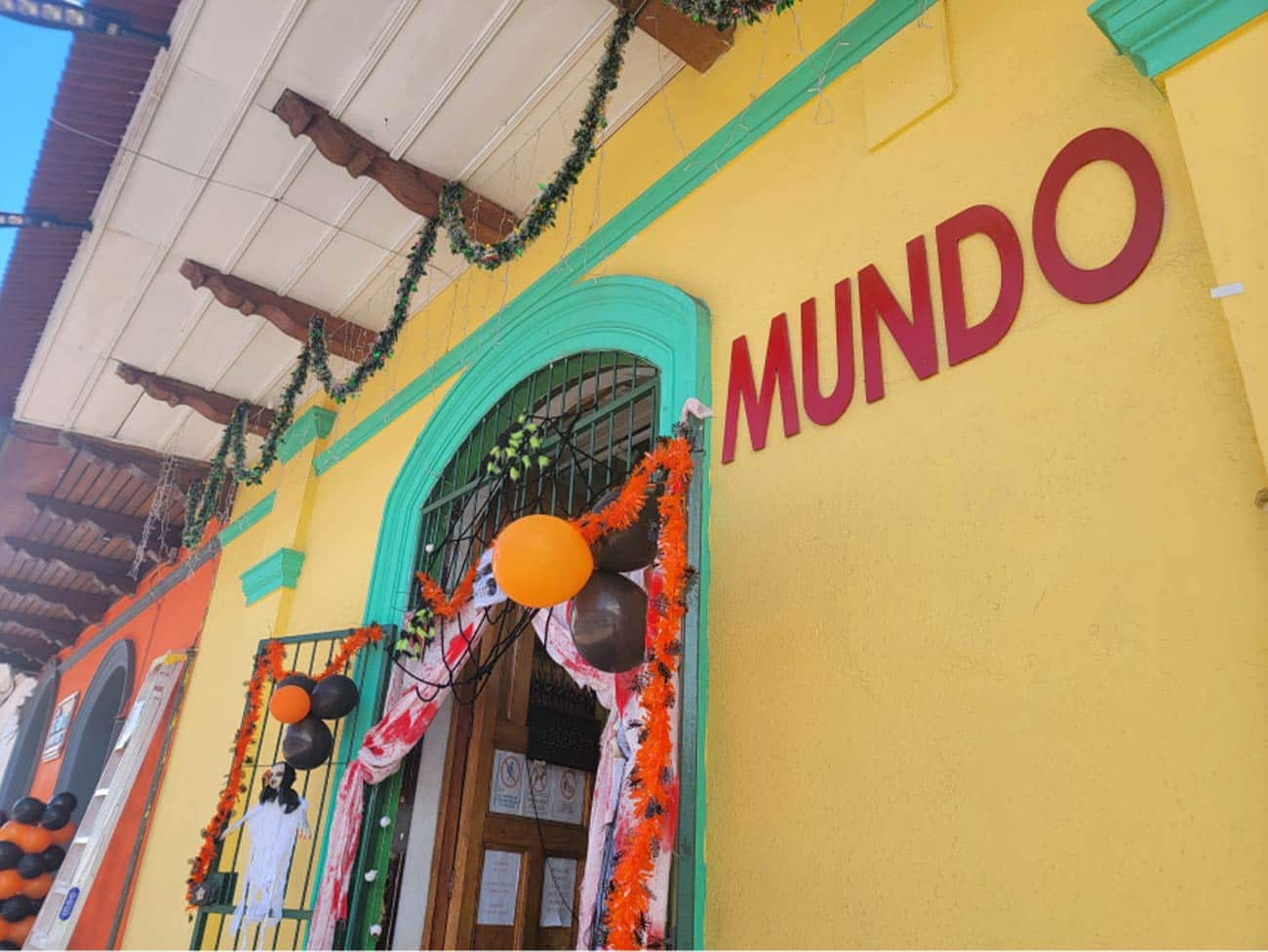
Other cities are experiencing slow but steady growth in the presence of Chinese merchants. In Granada, the department capital, only four stores have opened, both inside and outside the market. When I ask locals where to find Chinese supermarkets, they often look at me with confusion.
“I only know the one by Palí,” they usually respond. Mundo Nica and Dos Panda Mall are the most well-known, but Tienda 1998 and MTMAX Granada are gaining recognition. Other businesses are under construction or renovation. For now, Granada’s colonial charm and the presence of local Nicaraguan businesses remain intact.
Chinese businesses in Granada are still in the early stages of establishing themselves. Some stores require a minimum purchase of 50 córdobas, none accept card payments, and all transactions are cash-only.
Nicaraguans are gradually adjusting to these stores, as many have found employment in them. Some work as clerks, others as cleaning staff, forklift operators, drivers, and logistics assistants involved in setting up the stores.
The Chinese market has also expanded to other municipalities in Managua, like Ticuantepe, where stores such as Chinese Store have opened. However, these businesses haven’t spread as rapidly as in the capital. The main street of the municipality, already filled with local businesses, is anticipating the arrival of more stores like these.
As Chinese-owned businesses continue to expand in Nicaraguan cities, the Ortega-Murillo government is welcoming these new “partners,” who are slowly transforming Nicaragua’s commercial landscape. It wouldn’t be surprising if, in the future, Ticuantepe becomes known as “Chicuantepe.”
